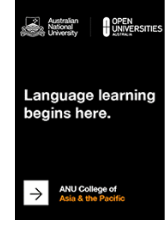Cooperation on vaccination and economic integration are crucial for the Asia Pacific’s economic rebuild, and APEC is an especially useful forum to further those goals, Olga Krasnyak writes.
COVID-19 is here to stay but the pandemic is entering a new phase. Governments are lifting lockdowns, incentivising vaccination – and in some environments making it mandatory – and introducing other restrictions to contain the virus.
While the pandemic situation varies widely at the domestic level, at a multinational level, there is optimistic talk of collective action designed to minimise the virus’ impact on the global economy.
For instance, the Asia-Pacific Economic Cooperation (APEC) Economic Leaders’ Meeting on the COVID-19 Response, organised and chaired by New Zealand’s Prime Minister Jacinda Ardern, was a fine example of promoting multilateral economic policy as the Asia-Pacific region looks to move on from the pandemic’s peak.
With its emphasis on establishing common goals to promote economic development and using traditional diplomatic tools to achieve economic goals, APEC and its member states have been able to use the forum to balance national and international interests.
Throughout the COVID-19 pandemic, APEC has become an even more important part of sustaining international relations in the region.
During the latest virtual summit, APEC state leaders evaluated possibilities for economic reconstruction in the region, and paid special attention vaccine diplomacy.
This is because from this international perspective, the most pressing issue in both health and economic terms is wider vaccine distribution in the Asia Pacific.
APEC is a forum well-suited to organising the removal of international obstacles to vaccination, like mutual vaccine recognition and distribution, and its member states could use APEC arrangements to kick-start the flow of people between countries and get businesses, education, and tourism moving again.
The revival of people-to-people activity in the region is critical, and this problem could be mediated within APEC’s existing diplomatic structure, giving the forum itself momentum in the process.
Despite the urgency of the COVID-19 challenge, diplomatic communication, especially between adversarial countries or countries with contrasting political systems, has struggled to provide consensus and cooperation.
Considering the huge importance of wider vaccine access, compromise on vaccine policies must prevail in foreign policy decision-making, and forums like APEC are a good platform for these compromises.
The first problem APEC member states could address is mutual vaccine and test recognition, something it already does for some professional qualifications.
Mutual vaccine recognition would involve the international recognition of test results and vaccine certificates and passports, so that people can take their vaccine passport or negative test result and have it recognised by authorities anywhere in the region.
With international businesses ramping up their activities and educational exchanges and tourist visits for those who are fully vaccinated becoming possible, recognition is an urgent problem.
Second, they could use the forum to establish more transparent and non-discriminatory international regulations on vaccine production and distribution.
This also has the potential to lower the cost of vaccines. Given this often comes down to poorly coordinated economic policies, APEC is a uniquely useful forum for acting on this issue.
These goals are achievable and prospects for much deeper cooperation between the Pacific Rim countries are realistic too, considering the Aotearoa Plan of Action – a plan for implementing the Putrajaya Vision of an ‘open, dynamic, resilient and peaceful Asia-Pacific community by 2040, for the prosperity of all our people and future generations’ in the next 20 years.
With the region moving into the next phase of the COVID-19 challenge, vaccine diplomacy will be crucial for managing economic outcomes that have been negatively affected in the last two years by the pandemic.
Managing vaccine issues and resuming the international movement of people are necessary steps which, aside from their economic importance, hugely impact the wellbeing of people of the Asia Pacific. Failing to act on these issues promptly will hit the region’s economy even harder.
A PEC provides a platform for state leaders and diplomats to communicate and can advance these causes while still safeguarding national and global economic interests. It gives its members an opportunity for genuine communication between state leaders on the crucial challenge of vaccine diplomacy.
PEC provides a platform for state leaders and diplomats to communicate and can advance these causes while still safeguarding national and global economic interests. It gives its members an opportunity for genuine communication between state leaders on the crucial challenge of vaccine diplomacy.
This is what re-opening the Asia Pacific looks like – mutual vaccine recognition and securing wider access to vaccines across the region. Working toward these goals at APEC meetings and forums may seem a small step, but it is crucial to the region’s prospects for post-pandemic prosperity.





 Vaccine access is key to the Pacific’s COVID-19 recovery
Vaccine access is key to the Pacific’s COVID-19 recovery
 The limits of multilateralism
The limits of multilateralism